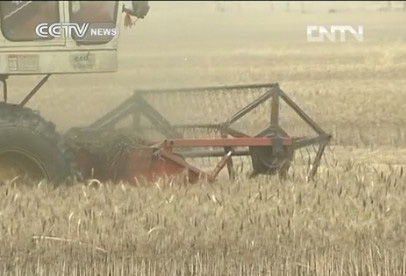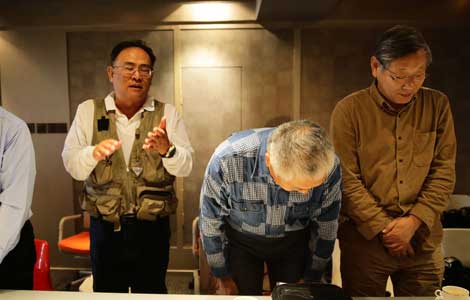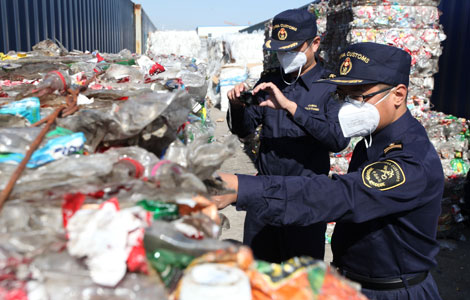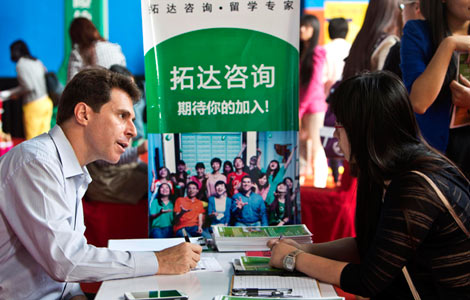Urbanization shrinking farmland area in Henan
Updated: 2013-10-17 14:58
(english.cntv.cn)
|
||||||||
Wednesday marks the annual World Food Day. In China, the yearly agricultural output over the past few years has continued to grow. But with urbanization and industrialization increasing in recent years, the amount of arable land area is shrinking. CCTV reporter Xia Ruixue went to Henan, the country's most populous province and one of its major agricultural bases to see how it's aiming to achieve industrialization, urbanization and agricultural modernization, as well as protect the environment.
40-year-old Xu Ruli is a security guard in the Yongcheng, Henan province. Like 4,000 of his peers in the city, he and his family left the countryside in 2010 and moved into a brand-new rural community, only four kilometers away.
Xu's wife found a gardening job with a monthly salary of 750 yuan. But what satisfies her most is welcoming her husband to their 120-square-meter apartment after work every day.
Cable TV, internet, and a nice dining room, Xu's family waved goodbye to their rural life.
"My son is also working in the city. We earn way more than before. And now we have the privileges that we once thought were only enjoyed by urban residents. It's good to live here." said Xu Ruli, Yongcheng Resident.
Xu Ruli is not the only one who's stopped tilling fields and relocated to a city in Henan, which contributes ten percent of the country's annual grain output.
Due to rapid industrialization and urbanization, shrinking arable land has been a major problem in recent years.
As limited subsidies are offered to farmers who grow grains, an increasing number of the rural labor force is flocking into cities to find jobs, leaving their farm land idle in the countryside. Many have succeeded in becoming permanent residents.
"We should find some measures to promote urbanization and industrialization without sacrificing agriculture and the environment. The first thing is to turn barren hills into arable land. It may not be high quality land, but we can still use it. The most important thing is to do more scientific research to increase the grain and wheat output. " said Ma Wanjie, Dean, Henan Academy of Agricultural Sciences.
At the beginning of this year, the State Council issued its first document on agriculture for this year, where it urged the development of family farms across the country. The policy is to speed up rural land transfers and offer more subsidies for family farms and farming cooperatives in an effort to develop large-scale farming.
Xu Ruli's farm land was also transferred to his neighbor to build a family farm. It is believed it will improve productivity, which in turn can improve economic efficiency in the country's rural areas.
And this new farming structure is enticing more migrant workers to return home to till fields.
China saw its ninth consecutive year of growth in grain output in 2012, but it's still facing a rising possibility of a fall due to the increasing shortage of arable land and the loss of the rural labor force. How to achieve industrialization and urbanization, while guaranteeing agricultural modernization, as well as protecting the ecosystem and environment, are major challenges.

Most Viewed
Editor's Picks

|

|

|

|

|

|
Today's Top News
US not budging on its arms restrictions on China
Can cranberries catch on in China?
Asia-Pacific pays executives world's highest salaries
US debt deal a temporary fix
China is No 1 oil importer
Millennials worried about finances
Elderly group sorry about roles in turmoil
Investigation to diagnose nation's TCM resources
US Weekly

|

|













